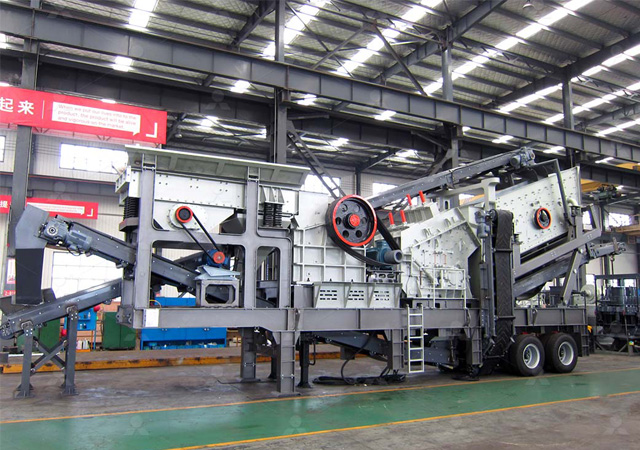Mobile crushers are versatile and efficient machines designed for a variety of applications in the construction and mining industries. They are primarily used for crushing rocks and other materials on-site, eliminating the need for transportation to a fixed crushing facility. Here are detailed specifications and features of mobile crushers divided into five paragraphs:
1. Design and Build Specifications
Mobile crushers are built with robust and durable materials to withstand harsh operating conditions. Typically, they feature a heavy-duty chassis made from high-strength steel to support the weight of the machine and the materials being processed. The design often includes a compact footprint for ease of transport and maneuverability on job sites. The units are equipped with hydraulic legs or stabilizers to ensure stability during operation. Many mobile crushers are designed with an efficient layout that allows for easy access to components for maintenance and repairs.

2. Crushing Mechanism and Capacity
Mobile crushers utilize different types of crushing mechanisms depending on the model and application. Jaw crushers, cone crushers, and impact crushers are commonly used in mobile units. The crushing capacity of these machines can vary widely, with some models capable of processing 50 to over 600 tons per hour. The crushing chamber design, combined with the type of material being processed, greatly influences the efficiency and output of the crusher. Adjustable settings for the discharge size allow operators to tailor the output to meet specific project requirements.
3. Mobility and Versatility
One of the key advantages of mobile crushers is their mobility. Many models are equipped with tracks or wheeled chassis that enable them to move easily across rough terrain and job sites. This mobility allows for quick repositioning as work progresses, reducing downtime associated with transporting materials. Additionally, mobile crushers are versatile, capable of handling various materials such as limestone, granite, basalt, and recycled concrete. Many units can be customized with different attachments and screening systems, enhancing their functionality and adaptability for different applications.
4. Power and Performance
Mobile crushers are powered by either diesel or electric engines, with some models offering hybrid options. The engine size and type significantly affect the overall performance, fuel efficiency, and environmental impact of the machine. Advanced features like remote monitoring and automated control systems are becoming increasingly common, allowing operators to optimize performance and track key metrics such as fuel consumption, engine temperature, and operational efficiency. These innovations contribute to lower operating costs and improved productivity.
5. Safety Features and Compliance
Safety is a paramount concern in the design of mobile crushers. Manufacturers incorporate numerous safety features, including emergency stop buttons, safety guards, and alarms to alert operators of potential hazards. Many models also feature advanced control systems that prevent the machine from operating under unsafe conditions, such as when the doors are open or maintenance panels are removed. Compliance with international safety and environmental standards is critical, ensuring that mobile crushers operate efficiently while minimizing their impact on surrounding environments. Regular maintenance and adherence to safety protocols are essential for optimal performance and operator safety.
In conclusion, mobile crushers are complex machines designed for efficiency and adaptability in various industrial applications. Their specifications are tailored to meet the demands of modern construction and mining processes, making them indispensable tools in the industry.
